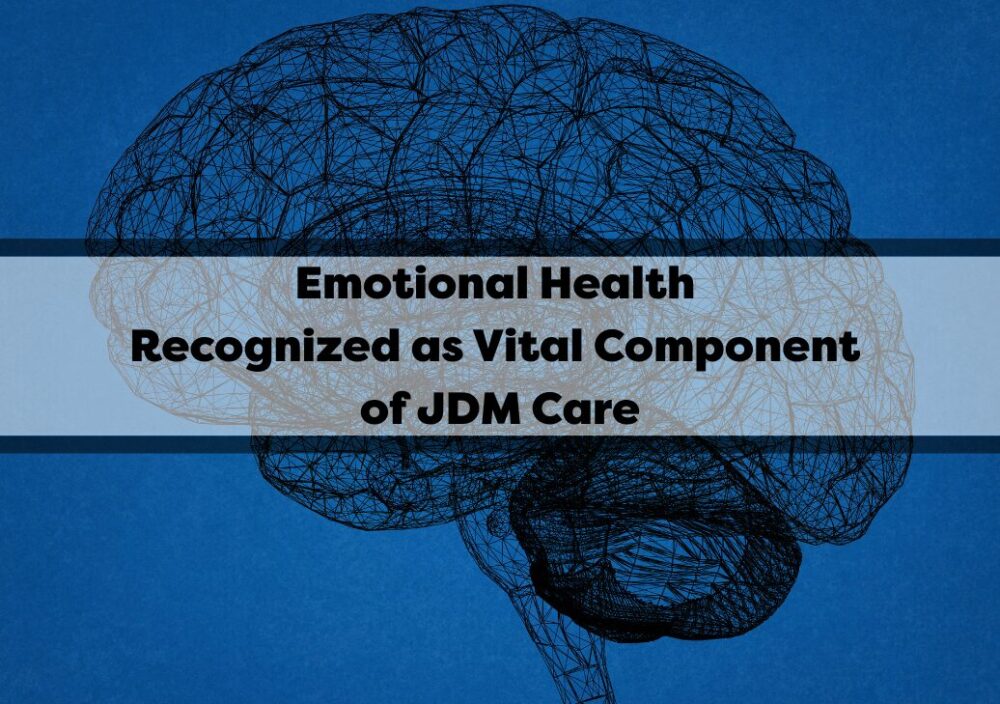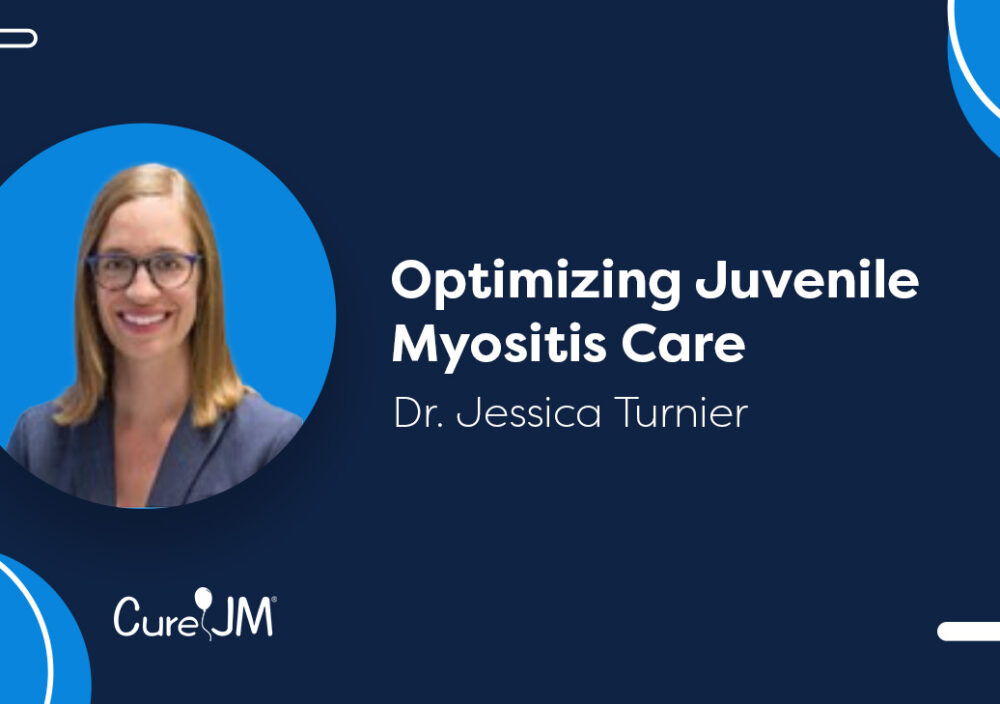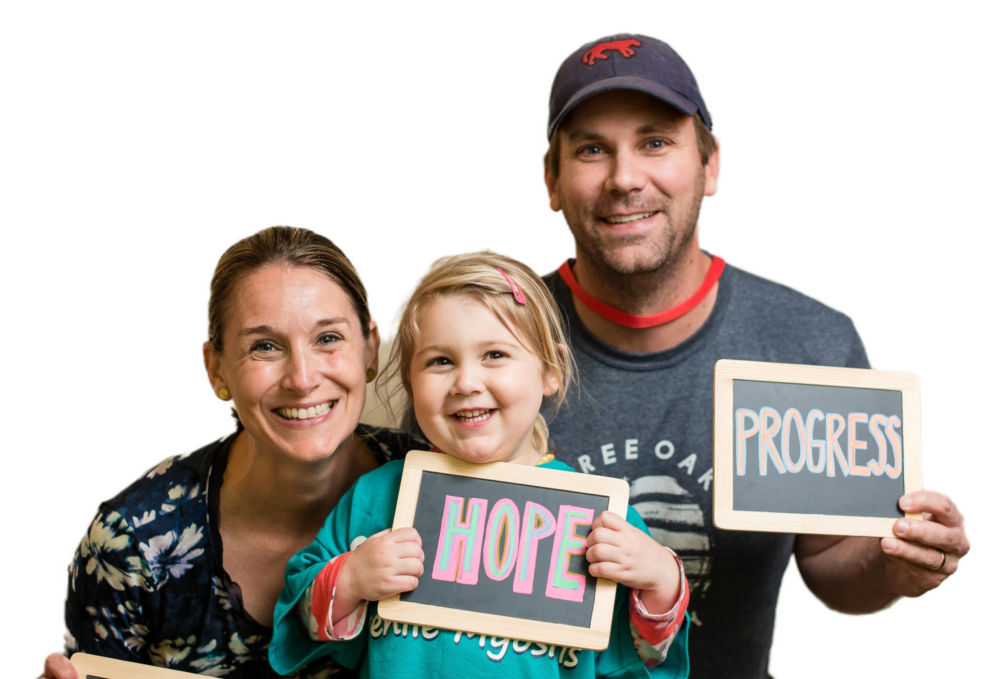The American College of Rheumatology Releases First-Ever Guidance Statements to Address Mental Health in Pediatric Rheumatology
New Mental Health Guidance for Children with Juvenile Myositis
Caring for a child with juvenile myositis (JM) goes beyond managing flares and medications—it means supporting their whole well-being, including mental and emotional health. Research shows that children with chronic illnesses like JM are at a significantly higher risk for anxiety, depression, and emotional distress. These challenges can affect not just day-to-day life, but also treatment outcomes and long-term health.
Now, for the first time ever, the American College of Rheumatology (ACR) has issued official mental health guidance—11 statements that:
a) encourage identification of mental health concerns, by screening children ages 12 and older, “using clinically validated and developmentally appropriate measures of anxiety, depressive symptoms…” (7 statements)
b) support collaborative management of health concerns (2 statements)
c) encourage pediatric rheumatologists to have ongoing discussions and education with families about mental health, saying: “Information should be given in a manner consistent with the patient’s developmental stage and socio-cultural background.” (2 statements)
“This is a milestone for families,” says Suzanne Edison, Cure JM’s Mental Health Coordinator and a key contributor to the multi-year effort to obtain consensus on these statements. “Living with JDM is filled with ups, downs, and uncertainty. Supporting mental and emotional health is not optional—it’s essential.”
“Thank you so much to everyone who worked on this critically important effort. This is a great example of our community coming together to tackle a challenge that affects families living with many different pediatric rheumatic diseases.”—Erin Moriarty Wade, caregiver and Communications Director at CARRA.
Mental Health Becomes Part of Standard JM Care
Clinics are now encouraged to screen for depression, anxiety and suicidal ideation at least once a year, or more frequently if needed. Doctors will use quick, age-appropriate questionnaires to check in on how your child is coping emotionally. These tools are designed to respect your child’s privacy and developmental stage. Participation is optional.
“For patients who demonstrate moderate to severe symptoms (with or without suicidal ideation): an urgent assessment by a mental health specialist is preferred to advise on evidence-based treatments, including possible options for medication management to be used in conjunction with psychological intervention.”
While not every clinic may have the resources to implement this right away, these screenings are expected to become a regular part of JDM care over time.
Support Will Be Based on Individual Needs
- Mild symptoms? Your care team may recommend follow-up with a pediatrician, clinical social worker, or school counselor.
- Moderate to severe symptoms? A referral to a mental health specialist may be needed for therapy or medication.
- Urgent concerns? The team will act quickly to ensure your child receives immediate support and care.
How Cure JM is Responding:
While these issues and concerns are not new to Cure JM we will continue to support this advancement by working with Duke University Medical Center and others, to host training sessions for clinicians that will help them learn how to respond effectively to any mental health concerns that screenings may uncover.
What Families Can Advocate For:
1. Emotional Health Support Should Start at Diagnosis
Families should receive brochures, websites, or peer support information right at the time of diagnosis—and conversations about emotional health should continue throughout your child’s care journey. For mental health tools, emotional support strategies, and tips for parents and teens, visit our Emotional Health Resource Library.
2. Parents Can Ask About Support
If your provider doesn’t start a conversation with you or your child about emotional well-being, you, as a parent or caregiver can ask about their plans to address emotional support in clinic. Feel free to take, or send them a copy if they are not familiar with these new statements. (link to https://acrjournals.onlinelibrary.wiley.com/doi/10.1002/acr.25519)
3. It is Important to Treat the Whole Child, Not Just the Disease
Clinicians are encouraged to recognize how life transitions—like school changes or disease flares—can impact your child’s emotional health. The guidelines also urge providers to be mindful of disparities in access to care among diverse and underserved communities.
Why It Matters
Parents and patients often say their pediatric rheumatologist is their most trusted provider. These new consensus statements recognize that emotional health is just as important as physical health—and that both deserve attention and care.
“This is a powerful step toward truly whole-child care in juvenile myositis,” says Suzanne Edison. “It means our children and teens are seen, heard, and supported—not just in body, but in mind and heart too.”




